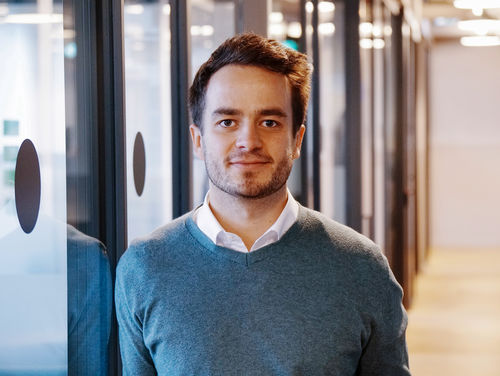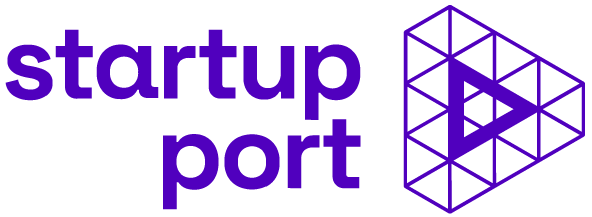As the founder of bentekk, Johannes Weber recently published an article on the six lessons learned from the time he started up the company. As a guest contributor, he provides us with these valuable insights and has also answered a few questions.
Following a talk, I gave on January 22 in front of aspiring entrepreneurs at the Airbus BizLab, at an event hosted by the TU Hamburg Institute of Entrepreneurship, I wanted to share my learnings more widely.
In January, I talked about my six learnings from six years of building the start-up bentekk. This was a few months after I had left the company, so it was a good opportunity to reflect on my experiences. For more background information on bentekk, take a look at the company’s website or read this interview (in German). If I had to start all over, here are six key points I would focus on even more:
1. Involve the crucial employees with shared ownership
The development of a high-tech hardware product requires a variety of skills, which are rarely covered in founding teams of 2-3 people. My co-founder, Matthias Schmittmann, is a chemical engineer, whilst I am a mechanical engineer; we both have an MBA, thus combining quite a few necessary skills. Nevertheless, further in-depth skills were absolutely central to the development of our product, for example in the field of electrical engineering, software development (firmware, native mobile, and web) and algorithms.
An expansion of the founding team, to involve crucial employees, is not always practical or appropriate. However, the dependence on individual employees carries significant risk and requires a lot of tact and nerve on the part of the founding team.
In order to solve this problem, I would set up an employee stock option plan that grants selected employees virtual company shares without voting rights. On the one hand, this creates a much stronger motivation, responsibility, and loyalty of the employee to the start-up, whilst on the other hand, this compensation component makes it possible to focus on hiring more experienced full-time employees early on.
In Germany, the tax laws for an employee stock option plan are at a disadvantage compared to many other countries, which is why I can only emphatically endorse one of the core efforts of Christian Miele and the German Start-up Association to change this.
2. Work more often on the company, instead of in the company
As a result of the purchase of my start-up in 2017 by the corporate, Dräger, many of the people necessary for growth were not employed by bentekk, but several tasks were taken over by existing group employees, as part of an integration process, particularly in sales, service, and production. Because of this, bentekk always remained relatively small in terms of its number of employees, with no support staff of its own. This meant that, as CEO, I often took on many of the very operational tasks myself, such as document digitalisation, software testing and IT administration.
In the future, I would hand over more of these tasks to the existing team or expand it appropriately. Especially in a later start-up stage, the founding team can create more value in the long run if they take the time to leave the “engine room” and think more strategically about partnerships, corporate culture, employee development, networks, and other value drivers.
Some time ago, I read a book by Stefan Merath, which clearly defines the different roles of an entrepreneur. His formulations to work regularly on the company, instead of exclusively in the company is very valuable to internalise.
3. Celebrate successes with everyone involved
During my six years at bentekk, we achieved great successes, both small and large, including the first fully functioning prototype, the closing of the first round of financing, the first product sold and the winning of start-up awards. Looking back, we did not really celebrate many of these milestones. Sometimes, the days before were so exhausting that we preferred to fall into bed. You could say that, at times, we either took the success for granted, or we did not perceive it as such.
In the end, however, it is precisely these successes that are remembered and so they should be duly celebrated. In the future, I would also involve partners to strengthen the relationship with them. In our case, this could have been, among others, the long-standing bentekk tax consultants from Clostermann Jasper Partnerschaft (CJP), industrial designers from INDEED and the landlord, NIT.
In tough times, when optimism and motivation are harder to find, we need these experiences and memories to get us through. I believe that we are not motivated by hard business results. We are motivated by linking these with personal, positive experiences.
4. Take time for personal development
I agree with the frequently mentioned recommendation that start-up teams must bring a “laser focus” with them. In the first few years, we, too, concentrated fully on executing our plan. My impression is that, given the large number of start-up events, there is an adverse selection of participants. The founders who find much time for it are often those who decide to become entrepreneurs because of the supposedly hip lifestyle or who play with the idea for a long time, but never put it into practice. However, after finding the product-market fit, I think it is essential to broaden one’s view and work on one’s own personal development e.g. by visiting startup-events and exchange with other entrepreneurs from the scene.
As the team grows, the role of the founder changes to that of a manager and a leader, from whom other skills are required. In the future, I would take more time to educate myself, as I recently did with a coding bootcamp, and to expand my network, for example, by increasing my involvement with the Founders Institute Hamburg or the WeWork Labs Hamburg.
I think it is right to see entrepreneurship as a way of not focusing on the individual company but on one’s personal, entrepreneurial journey. With this attitude, something positive can also be gained from the possible failure of one’s own start-up, as part of a learning process.
5. Love it or change it
As a CEO, I do not have a boss to turn to when I want to complain about something. If I don’t like it, it is up to me to change it.
6. Appreciate the diversity of entrepreneurship
With bentekk, we were not one of those start-ups that hire 100 people within a year and aim to triple revenue every year. We never planned to be. But at the same time, we wanted to raise some venture capital in order to push ahead with the complex product development as quickly as possible. Financing bentekk through parallel engineering services, for example, would have been conceivable, but it would have shifted the focus.
High-tech hardware start-ups are often on the verge of being venture cases. Thinking big in acquiring capital worked for us, but it is not easy in this domain. I recently hosted an event with Catharina Bruns, who is an advocate in the German-speaking world for other forms of entrepreneurship, in contrast to highly scalable start-ups, which made me aware of the different types of entrepreneurship again.
I recommend every aspiring founder to think carefully about whether, for example, working as a freelancer, bootstrapping an agency or a small, medium-sized business, or a business succession is not a better fit for him or her. Many of the challenges associated with raising venture capital are then off the table. We should appreciate the diversity of entrepreneurship more.
3 questions from our editor Laura Steinau to … Johannes Weber
Your article contains valuable insights from your start-up time. Do you also share your knowledge with other founders?
For example, I am involved as a mentor for other startups at WeWork Labs Hamburg. I have also met many teams from the Startup Dock area over the past few weeks for coffee or lunch. I like to give back knowledge to the startup scene and maybe these conversations will also result in an exciting opportunity for future projects.
There are lots of dos and don’ts in the start-up world: What are your two central tips for our young founders?
First: Don’t hesitate too long, just get started. The best way to learn everything you need to know is along the way. Second: An idea alone is worth nothing. The implementation is crucial. That’s why nobody should be afraid to talk openly about their plans. With potential customers, with experienced founders, with possible partners. Every conversation takes the founder one step further.
What are your next plans?
After leaving bentekk, I plan to use at least six months for new learning experiences and regeneration. I have not yet decided on a time frame for the time after that, but at the moment I can well imagine complementing an existing start-up management and supporting it in the growth phase. I have already been able to conduct initial talks in this direction and the desire to do so is increasing every week.
Thank you, dear Johannes, for your guest contribution and the interview!
Background to bentekk
Matthias Schmittmann and Johannes Weber founded bentekk 2013 from their studies. Both studied at the Hamburg University of Technology (TUHH) and the Northern Institute of Technology Management (NIT). The start-up developed the X-pid 9000, a portable gas measuring device for monitoring limit values of carcinogenic substances in the air. The device is used in occupational safety in companies in the oil, gas and chemical industries. Customers include BASF, Shell, Dow and BP. In April 2017, bentekk acquired 51 percent of the shares in Dräger Safety AG & Co. KGaA. (see our blog article). At the beginning of 2019, the founders had then sold the last shares in the company to Dräger and since then have only been employed managing directors. At the end of August, after a six-month transfer phase, the exit followed. The Dräger X-pid 9000 is now available in more than 15 countries in Europe, North America, Australia and in some cases in Asia.

